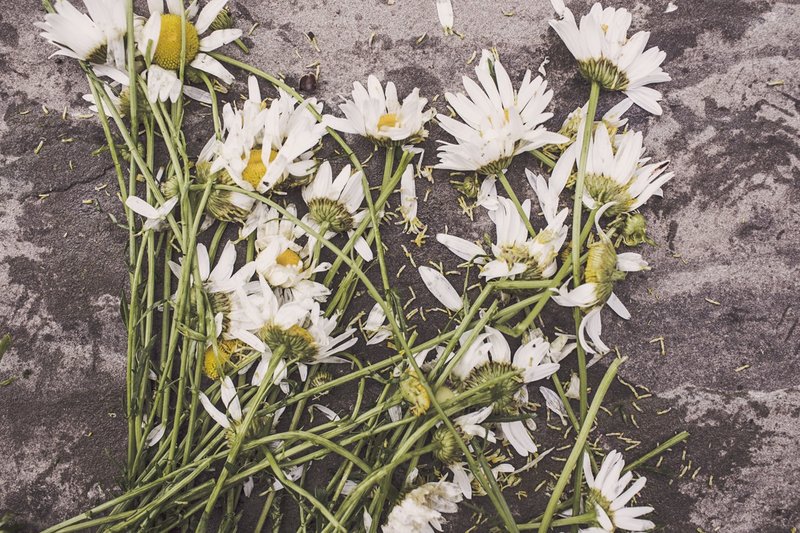My friend lost her husband a few months after their marriage. It was sudden, sad, and naturally, one of the most tragic events anyone could ever face in their lives. The Iddah period was probably the longest months of her life so far.
When two people love each other very much and get married for the sake of Allah (ta’ala), having Allah (ta’ala) test you by taking the other person away can be an experience that is both humbling and scary.
But in all of the days of tragedy; the death, burial, the blurry days filled with tears, there was an unexpected mercy of Allah (ta’ala) and it came in the form of the four months and 10 days spent in Iddah; mourning her husband as the Shariah stipulates.
These days of Iddah brought her closer to Allah (ta’ala) in a way that she or any of us never anticipated, and it brought with it a spiritual awakening that anyone who has lost a spouse or got divorced will find helpful, and everyone, regardless of their marital status, may find beneficial.
>> Understand the Quran in as little as 10 minutes/day. Click here to learn more
Iddah Can Open A Path for Reflection
When someone loses a spouse, their lives automatically takes a pause. Everything that mattered before the day of the death becomes insignificant. Even when the pain starts to feel lighter, there is still that element of disorganization that happens in people’s lives.
The period of Iddah brings with it the opportunity for reflection. That time when everything has quieted down is a time to withdraw and reflect on the purpose of your life. Because really, few things make us remember our purpose like the finality of death.
In those days of Iddah, even though there will be many tears, this time can also give you a chance to pause and reflect.
What is your purpose on earth as a Muslim? Where are you on your faith journey? What is your relationship with Allah (ta’ala) and His creations? If you were the one who passed away instead of your spouse, what regrets will you have?
These are some of the questions that kept coming to my friend as she reflected upon her life in those lonely days of Iddah. And undoubtedly, when anyone asks themselves these questions, you give room for your heart and mind to find themselves back to their natural fitrah.
Iddah Can Help You Get Closer to Allah (ta’ala)
What do you do for four months and 10 days when the only place you can go to is your workplace and then come back home? While you are still carrying the fresh experience of having a loved one in the grave?
The Iddah period gives room for someone to get closer to Allah (ta’ala) if He wills. It frees up all our self-imposed busyness and opens your eyes to the need to worship Allah (ta’ala) more.
These days of Iddah remind us that we are only on earth for a limited number of days and one day, our souls will return to its Lord.
So, you buckle up on good deeds, you recite the Quran, you make peace with those you have wronged and you observe as much Salah as you can.
Without the traps of socialization to distract you, a person begins to have more room in their lives to worship Allah (ta’ala).
I have seen women who in the period of their Iddah began to wear the hijab, observe Salah, and became more religious. Having these days to reflect and ponder certainly helps many to move closer to Allah (ta’ala).
“A calamity that turns you back to Allah is better for you than a bounty that makes you forget to remember Allah.”
This is a lesson even for people who are not in Iddah. Our periods of trial should serve as times that move us closer to Allah (ta’ala).
Whenever we are faced with a calamity, we should strive to use the opportunity to improve upon our Iman.
You may also like: Deeper than the Ocean
Iddah Can Bring You A New Purpose
During the Iddah period, my friend got some ideas on how she can help the needy in her community. And for her, this marked a new purpose for her life and it brought with it a renewed sense of hope as she prepared to exit the days of Iddah and begin her journey without her spouse.
When a calamity befalls us, it is normal to feel defeated and uninspired. But with the gift of the period of Iddah for us as Muslims, we can use this calamity as an inspiration to find a new purpose.
Many people become inspirational speakers after surviving unimaginable obstacles in their lives. Refugees become CEOs who want to eradicate world hunger after growing up in camps where food was rationed. All of these show that many people are influenced by the tragedy in their lives, to find a new purpose in making life better for others.
For the woman in Iddah, this may be the time when she finds a cause that speaks to her heart and she decides to champion it.
The period of Iddah is a gift from Allah (ta’ala) because, for the Muslim woman, this is a time that can help her process her grief and emerge even spiritually stronger than she was before she lost her spouse, or before her marriage ended (in the case of a divorce).
“But perhaps you hate a thing and it is good for you; and perhaps you love a thing and it is bad for you. And Allah Knows, while you know not.” (Quran 2:216)




[…] You may also like: How Iddah Can Bring You Closer To Allah […]